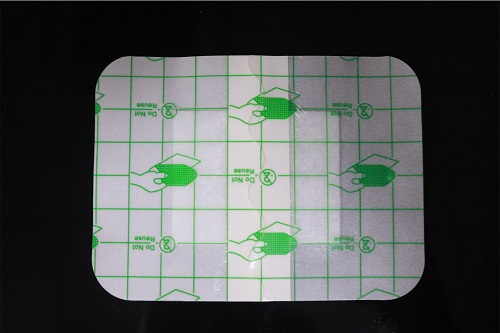Transparent film dressing is a widely used medical product that offers a unique blend of wound protection, visibility, and flexibility.
What Is Transparent Film Dressing?
- Definition: Transparent film dressing is a thin, clear, adhesive-coated polyurethane film designed to adhere to the skin and protect wounds.
- Purpose: It acts as a barrier to bacteria and external contaminants while allowing oxygen to pass through, which promotes healing.
- Transparency: Its see-through nature allows healthcare providers to inspect the wound without removing the dressing, minimizing disturbance to the healing process.
Key Benefits of Transparent Film Dressing
- Enhanced Visibility: The transparent nature allows for continuous monitoring of the wound site.
- Moisture Regulation: It maintains a moist wound environment, which accelerates the healing process.
- Barrier Protection: Transparent film dressing provides an effective barrier against water, bacteria, and viruses.
- Comfort and Flexibility: It conforms to body contours and moves with the patient, offering superior comfort.
- Easy Application and Removal: Most transparent film dressings are designed with an easy-peel backing and are gentle on the skin during removal.
Common Applications of Transparent Film Dressing
- Post-Operative Incisions: Often used to protect clean, closed surgical wounds.
- IV Site Protection: Ideal for securing intravenous lines and catheters without obscuring visibility.
- Minor Burns and Abrasions: Provides a protective layer while maintaining the natural healing environment.
- Stage I and II Pressure Ulcers: Suitable for superficial pressure injuries that are not heavily exudating.
- Tattoo Aftercare: Transparent film dressing is increasingly popular in protecting new tattoos during the early healing phase.
How to Properly Use Transparent Film Dressing
- Clean the Wound Site: Ensure the area is free of dirt, oils, and exudate. Pat dry before application.
- Choose the Right Size: Select a dressing that covers the wound with at least a 1-inch border around the edges.
- Peel and Apply: Remove the backing and carefully place the dressing over the wound without stretching it.
- Smooth Out Air Bubbles: Press gently from the center outward to ensure a secure seal.
- Monitor the Site: Regularly inspect the wound through the transparent film dressing for signs of infection or leakage.
- Replace as Needed: Change the dressing every 3-7 days or sooner if it becomes loose or soiled.
Precautions When Using Transparent Film Dressing
- Avoid on Infected Wounds: Not suitable for heavily exudating or infected wounds.
- Do Not Use on Fragile Skin: Elderly patients or those with sensitive skin may experience skin tearing upon removal.
- Check for Allergic Reactions: Some users may have a reaction to the adhesive.
- Do Not Reuse: Transparent film dressing is intended for single-use only.
- Avoid Excessive Moisture: While waterproof, prolonged submersion may compromise the seal.

